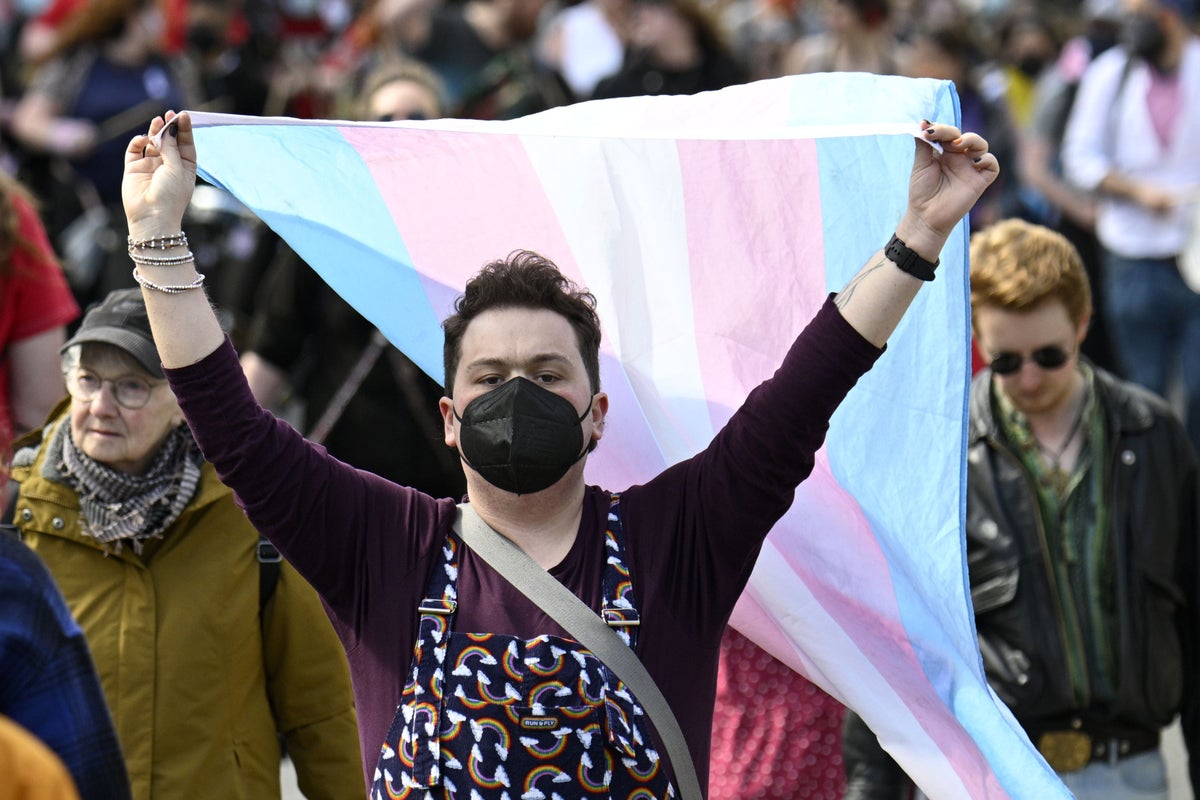
Trans people in the UK must not be left in an unacceptable “intermediate zone” in the wake of the Supreme Court gender ruling, Europe’s human rights watchdog has warned.
In letters to parliamentary committee chairs and the Home Secretary, the Council of Europe’s human rights commissioner Michael O’Flaherty raised concerns around both trans rights and the policing of protests after ministers banned Palestine Action as a terror organisation.
Mr O’Flaherty, who published the letters on Tuesday following his visit to the UK in July, indicated both issues must be considered in line with the European Convention on Human Rights.
He warned that the Government must avoid inconsistencies within UK law that could lead to legal uncertainty for trans people, after the Supreme Court ruled in April that a woman is defined by biological sex under equalities law.
Writing to Sarah Owen, chairwoman of the Women and Equalities Committee, and Lord Alton, Joint Committee on Human Rights chairman, he said: “It should be ensured that steps taken towards implementing the Supreme Court judgment avoid a situation where a person’s legal gender recognition is voided of practical meaning, to the extent that it leaves trans people in an unacceptable ‘intermediate zone’.”
New guidance from Britain’s equalities watchdog including on trans people’s use of certain spaces is currently under consideration by the Government after being submitted to equalities minister Bridget Phillipson last month.
Once ministerial approval is granted, the Government must lay the draft code before Parliament for 40 days before it can be brought into force.
Mr O’Flaherty said: “I note that Parliament has an important role as a guarantor of human rights, and in ensuring coherence and compliance.”
He warned of a tendency to see human rights of different groups as a “zero-sum game” which has led to a perception that the rights of trans people are a threat to others.
He added: “Such a zero-sum approach risks certain inferences being drawn from the UK Supreme Court judgment that could lead to widespread exclusion of trans people from many public spaces.”
He suggested it is “crucial” that new guidance is clear on “how inclusion of trans people can be achieved across all areas, and how exclusion can be minimised to situations in which this would be strictly necessary and proportionate”.
He raised a concern about a risk of requiring “trans people to habitually ‘out’ themselves publicly when accessing services or facilities”, arguing that beyond privacy concerns, this could also “significantly increase people’s vulnerability to harassment, abuse and even violence”.
Mr O’Flaherty noted that not all trans people want to obtain legal gender recognition but that this should “not in any way diminish their right to be treated with dignity, to be protected from discrimination, and to be able to participate in all areas of everyday life”.
He also said he is concerned “that a debate about violence against women, framed in a way that restricts the human rights and freedoms of trans people, risks undermining the comprehensive, evidence-based approach needed to address this epidemic”.
Elsewhere, the human rights chief wrote to Home Secretary Shabana Mahmood calling for the Government to ensure that policing of protests over Gaza, since proscribing Palestine Action as a terror group, does not restrict the right to peaceful assembly.
Hundreds of people have been arrested for supporting the group at demonstrations since its ban this summer.
He said: “Domestic legislation designed to counter ‘terrorism’ or ‘violent extremism’ must not impose any limitations on fundamental rights and freedoms, including the right to freedom of peaceful assembly, that are not strictly necessary for the protection of national security and the rights and freedoms of others.”
He also called for a review of laws for policing protests more generally in relation to the UK meeting its human rights obligations.
Mr O’Flaherty raised concerns that the Government’s Crime and Policing Bill currently going through Parliament may not comply with human rights laws.
Referring to a new offence under the Bill which would ban protesters from wearing face coverings, he said it raises questions over “necessity and proportionality” when police have powers for people to remove face coverings in specific cases.
His warning comes as Ms Mahmood has announced further plans to bolster policing powers to consider more restrictions on repeat protests following a wave of pro-Palestine demonstrations.
